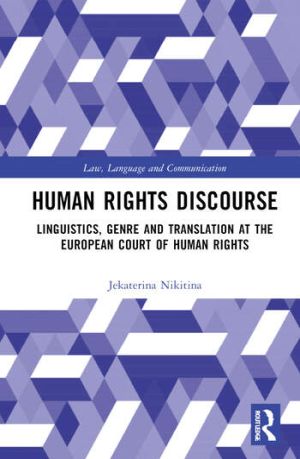
This book explores the concept of human rights as constructed in language, shedding light on discursive and professional practices at the European Court of Human Rights (ECtHR), as differentiated from other judicial institutions offering human rights defence mechanisms. It unveils the system of genres at the ECtHR adopting a holistic outlook, which caters for an interdisciplinary readership including both language and law professionals. The genres, along with the underlying professional practices and interdiscursive mechanisms, are described following the lifecycle of cases, starting from the initial application to the Court and ending with institutional press releases and execution of judgments, which foster greater democratic participation. The Court is depicted through its plurality of voices and stakeholders, acknowledging the non-monolithic nature of judicial discourse. The work follows the knowledge migration path from national into international justice and traces how national, and linguistically divergent, elements are recontextualised in a supranational context. It problematizes the coexistence of institutional and outsourced legal translation as well as their potential effects on the discourse of human rights.
The book covers issues of legal terminology, phraseology, dialogism, pragmatics and knowledge dissemination dynamics. The study will be an invaluable resource for academics, researchers and translators working in the areas of Law and Language, Linguistics, Translation Studies and Genre Studies.